In a wedge of shade under an otherwise blazing sun, Um Ali and her neighbors sit cross-legged, hands in constant motion transforming thin palm leaves and grasses into beautiful baskets. This village is quiet in the heat of the day, but for Um Ali (“Ali’s mom” in English) mornings buzz with busyness.
The result? Handmade baskets that are beautiful, functional, and sustainable.
Weaving with palm leaves is honorable work that Iraqi women are proud to do. Many women work at home, fitting in a few rows between household tasks. Some women gather together to work, swapping stories and laughter. All the profits earned by each maker belong to her—there is no expectation that a maker should hand it over to her husband or father. Each woman can choose to contribute to the household income, save for retirement, or do whatever is most important to her. This is work that provides agency.
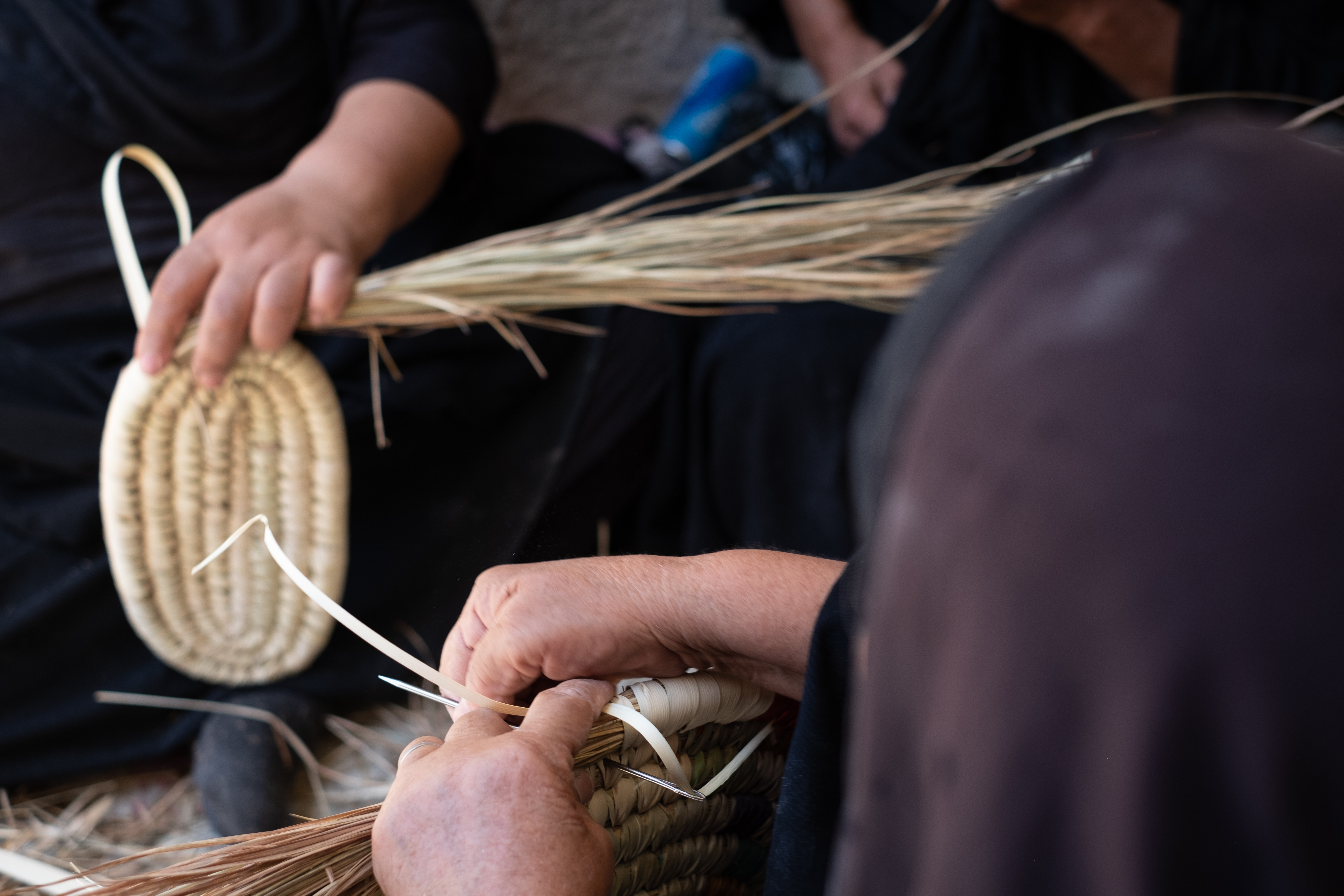
As for Um Ali, she has perfected her craft over many years of careful practice, and now she splits her time among negotiating order assignments with local women, negotiating on the phone with potential buyers, and completing some of the most demanding work herself. Um Ali is an artist, a keen businesswoman, a loving mother and grandmother, and practices the most beautiful resistance against violence with every basket she makes. With her whole life, she creates rather than destroys, as she opens up opportunity for her community, and provides her neighbors the chance to support their families—which takes them out of the desperate cycles of vulnerability most susceptible to politicians and militas alike who promise short term benefits but deliver instability and violence.
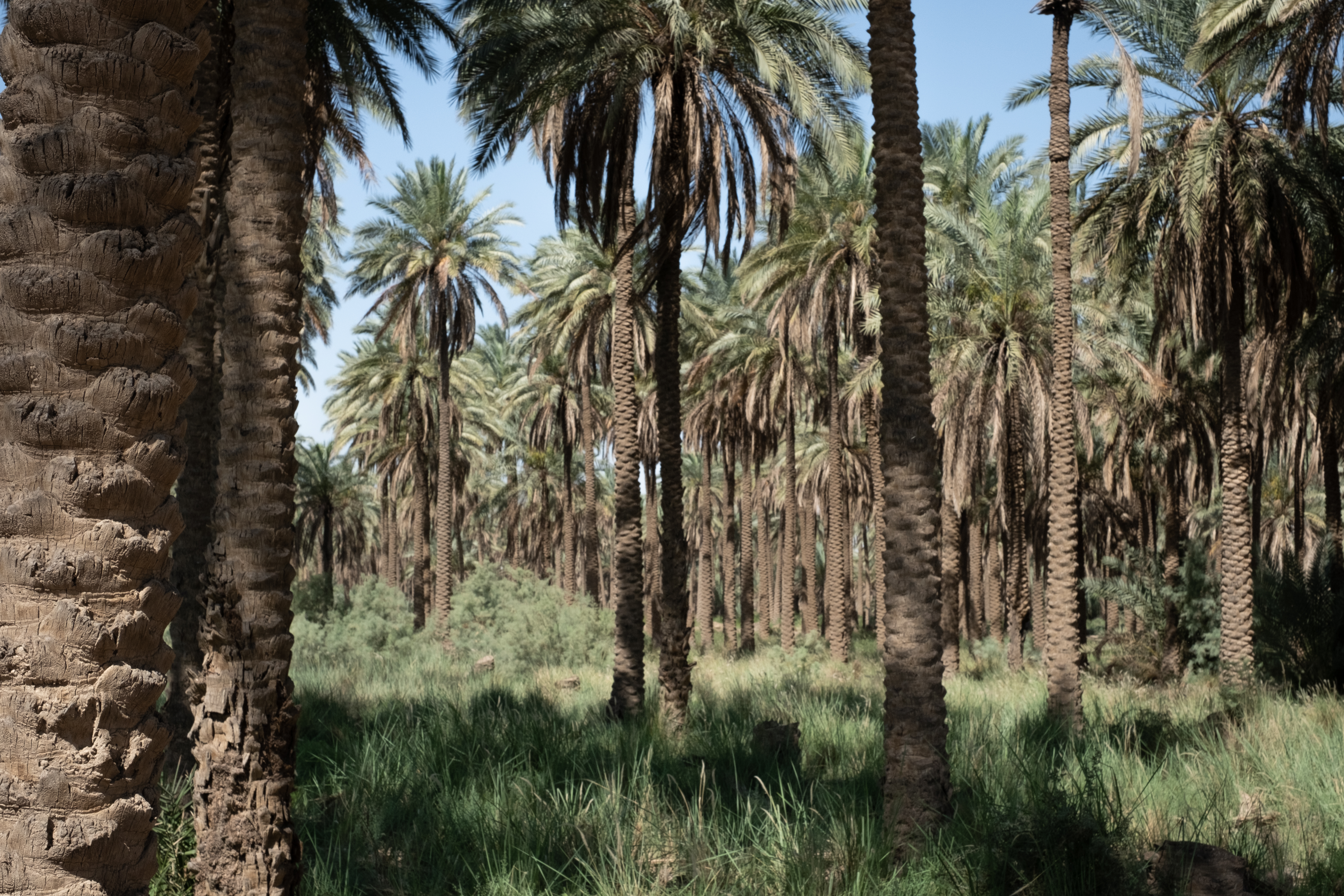
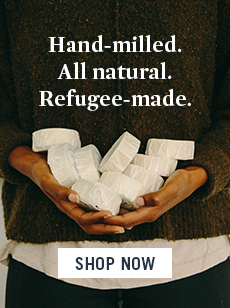
“With the palm, nothing is wasted.” It’s a phrase we hear often in Um Ali’s neighborhood. For at least 3,000 years, communities in southern Iraq have relied on date palms for their most practical needs. Standing palms provide shade and nutritious fruit. As trees grow, their new leaves are woven into useful household items such as baskets and brooms. At the end of their lifespan, palm trunks provide wood for furniture. Communities with palm trees have a versatile resource that needs nothing more than a sharp knife to harvest.
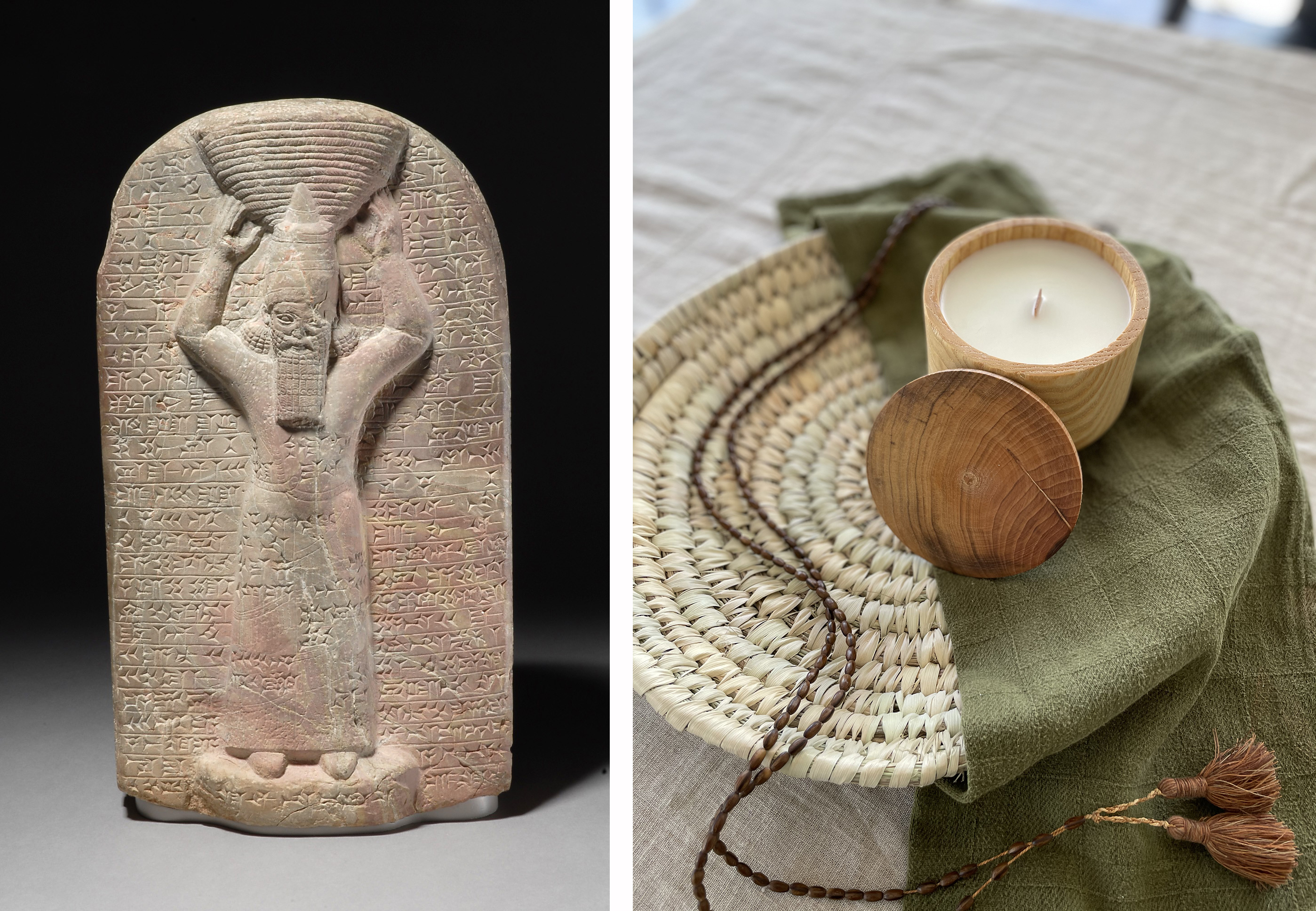
Right: Basket being used in Iraq today. Photo by Amanda Young / Preemptive Love.
At one time Iraq was known as “the land of 30 million palm trees.” But for the last forty years, palm groves have been under serious threat. Throughout the 1980s palms were destroyed in the Iraq-Iraq war, burned by falling rockets. When the US and allied forces invaded, palms were “chopped down or uprooted to clear lines of sight for US snipers and militant mortar teams.” Sanctions imposed on Iraq made it impossible to import the machinery needed for irrigation pumps and desalination projects. In addition, recent damming projects in Turkey and Iran have substantially reduced the amount of water flowing into Iraq, increasing both drought and levels of salinity. These factors threaten the lives of palm trees.
Political and economic violence has very real impacts that reach all the way to Um Ali’s village. If Um Ali and her neighbors give in to discouragement, they lose far more than an ancient skill.
Every basket, bowl, and coaster woven from palm and grasses is a beautiful testament to ingenuity, resourcefulness, and practical beauty.
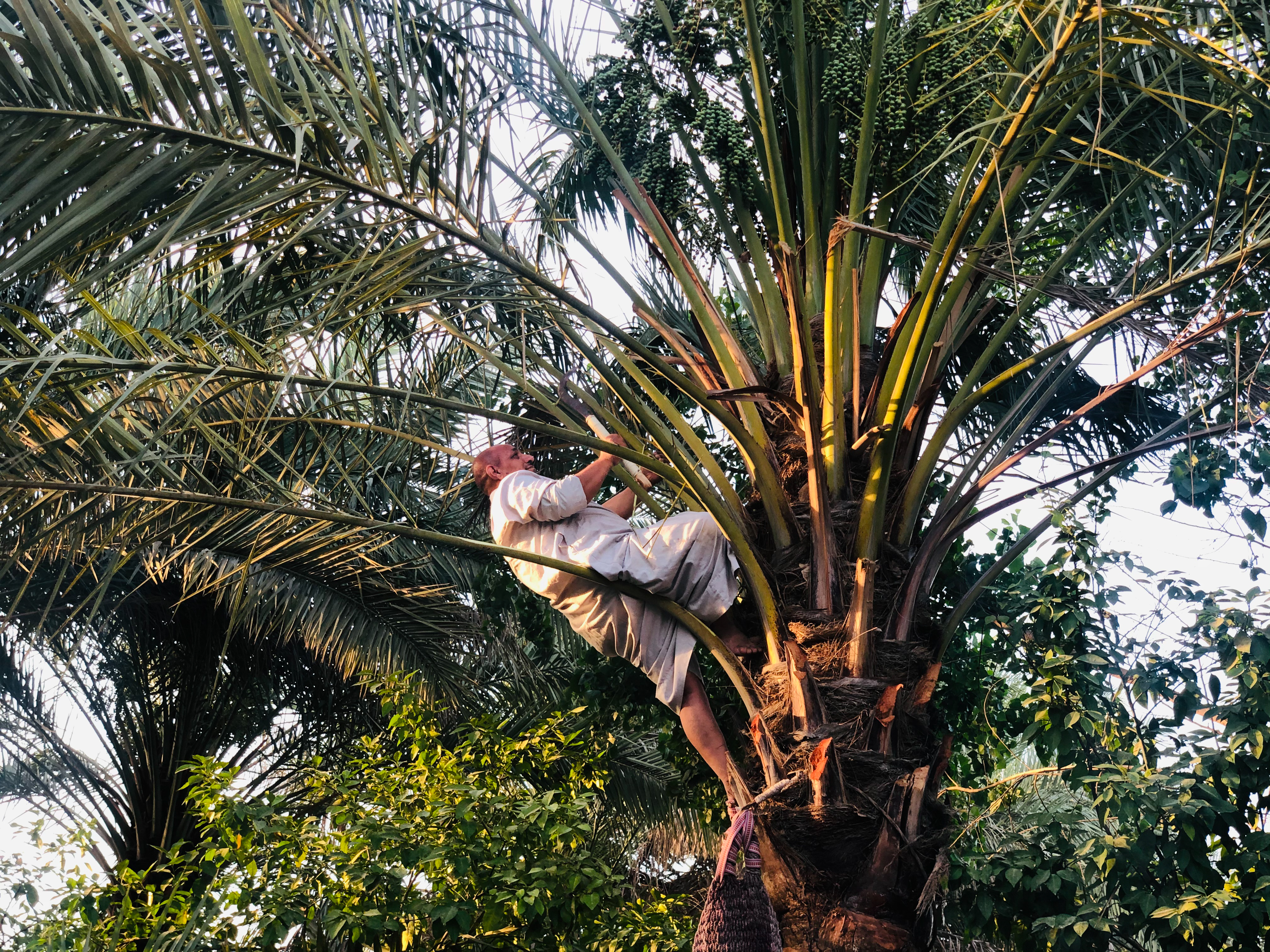
Um Ali and her neighbors create products that make sustainable use of local resources, unlike cheap plastic imports. They create goods without the use of electricity, that generate no pollution, that help prevent the devastation of soil erosion, and that leave a tiny environmental footprint.
Goods made from palm trees increase the economic value of palm groves, which causes developers to value land in a different way. They provide women income and agency, allowing families to stay in their traditional homes rather than moving to cities to find work.

As the value of palm trees increases, it makes sense to replant what has been destroyed by war. Generating income through palm trees creates a fresh demand for more palms, and with every tree planted some of the devastations from military violence are repaired.
This is where you intertwine with Ali’s mom’s story. When you buy her baskets, you get something beautiful and sustainable, but you also support 3,000 years of artistry and culture.
To see which baskets we currently have in stock, visit our Shop.
Read more about Um Ali’s story in Preemptive Love’s Holiday Gift Guide.


